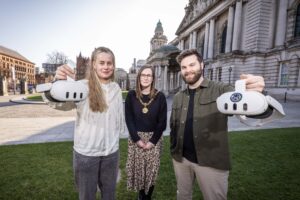New report from UK Space Agency highlights significant R&D investment, established infrastructure and skilled STEM workforce as factors that put this country at the forefront of space.
The UK space industry is a ‘hidden utility’ that underpins much of our daily lives and underpins the economy.
That’s according to a new report, Expanding Frontiers: The Down to Earth Guide to Investing in Space, produced by Strategy&, the strategy consulting team of PwC, working in association with the UK Space Agency.
It’s a timely report, as a parliamentary inquiry into UK space strategy and UK satellite infrastructure has been hearing expert evidence today.
The report reveals that the space sector represents 18% of UK GDP and is worth £370bn each year. More than 1,500 space-related companies already operate in the UK.
This is largely down to the 5,000 or so active satellites in orbit, estimated to increase to between 60,000 and 100,000 by 2030. This is down to increased global demand for connectivity but will also aid the UK’s commitment to making gigabit broadband available to 85% of premises across the country by 2025.
What’s more, around half of the world’s climate variables can only be measured from space – so satellite technology is essential to transitioning to net zero.
Craig Brown, Investment Director at the UK Space Agency, says: ‘We are now at an inflection point, where ideas previously confined to the pages of science-fiction represent attractive investment ventures – from solar farms in geostationary orbit to robotic factories making exotic materials in microgravity.’
‘As the number of satellites above us increases dramatically, there are even greater opportunities to capitalise on the wealth of data the collect and on the international efforts spearheaded by the UK – to keep the space environment safe and sustainable for generations to come.’
‘There has never been a better time to invest in this incredible sector, and we can all reap the benefits.’
Sadly, the UK’s potential to launch its own satellites suffered a major setback in January when Virgin Orbit’s LauncherOne rocket failed early into its first, historic flight from Spaceport Cornwall, near Newquay. In April, the US-based Virgin One filed for bankruptcy. This is the subject of today’s parliamentary inquiry.
Yet Spaceport Cornwall continues to receive government support and has now opened the doors of its Space Systems Operations Facility (SSOF) to a range of other companies working in satellites, software and related areas. Infotec.news will keep a close eye on developments…
In related news, households across the UK will be able to buy part of the first shared solar park in England, being built in Devon.
Photo by NASA

















Leave a Reply